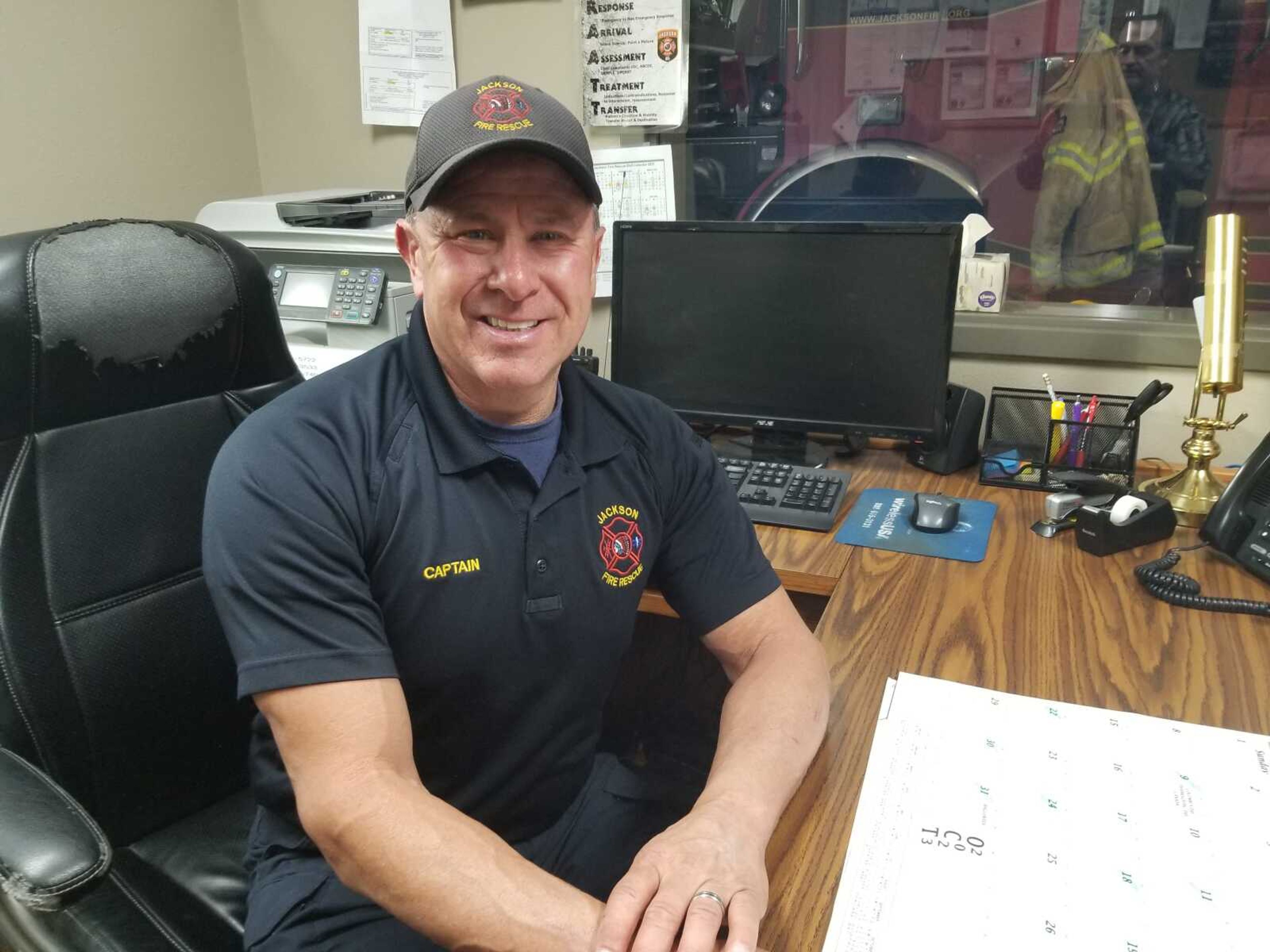First Responders Month: Adrenaline junkie — Jackson Fire Rescue first responder Robbie Greif
Jackson Fire Rescue Capt. Robbie Greif has spent 31 years in fire service, with 22 of them working for Cape Girardeau's county seat municipality. As a seasoned first responder, there is one day Greif will not soon forget — March 17, 2022. On that fog-aided St. Patrick's Day morning, six people were fatally injured, 14 others hurt and nearly 50 vehicles involved in a fiery crash on Interstate 57 near Charleston, Missouri...
Jackson Fire Rescue Capt. Robbie Greif has spent 31 years in fire service, with 22 of them working for Cape Girardeau's county seat municipality.
As a seasoned first responder, there is one day Greif will not soon forget — March 17, 2022.
On that fog-aided St. Patrick's Day morning, six people were fatally injured, 14 others hurt and nearly 50 vehicles involved in a fiery crash on Interstate 57 near Charleston, Missouri.
Greif, 53, was there wielding a fire suppression hose on 13 on-fire tractor trailers.
"When we arrived, it was almost overwhelming. I was so thankful we train for large-scale events," said Greif, who is also training officer for the department.
"There really aren't any words to describe that event. It was the worst accident I've ever seen."
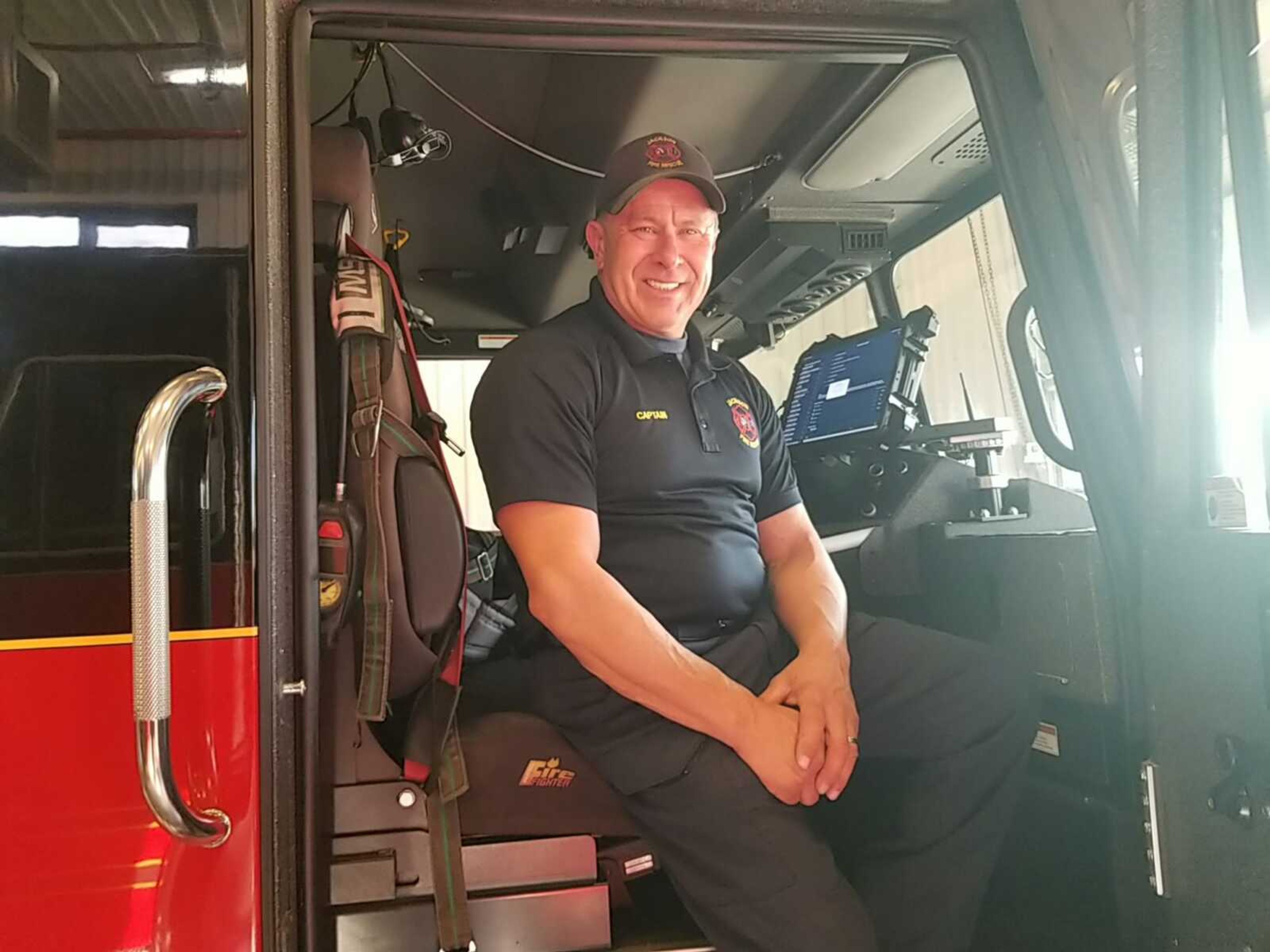
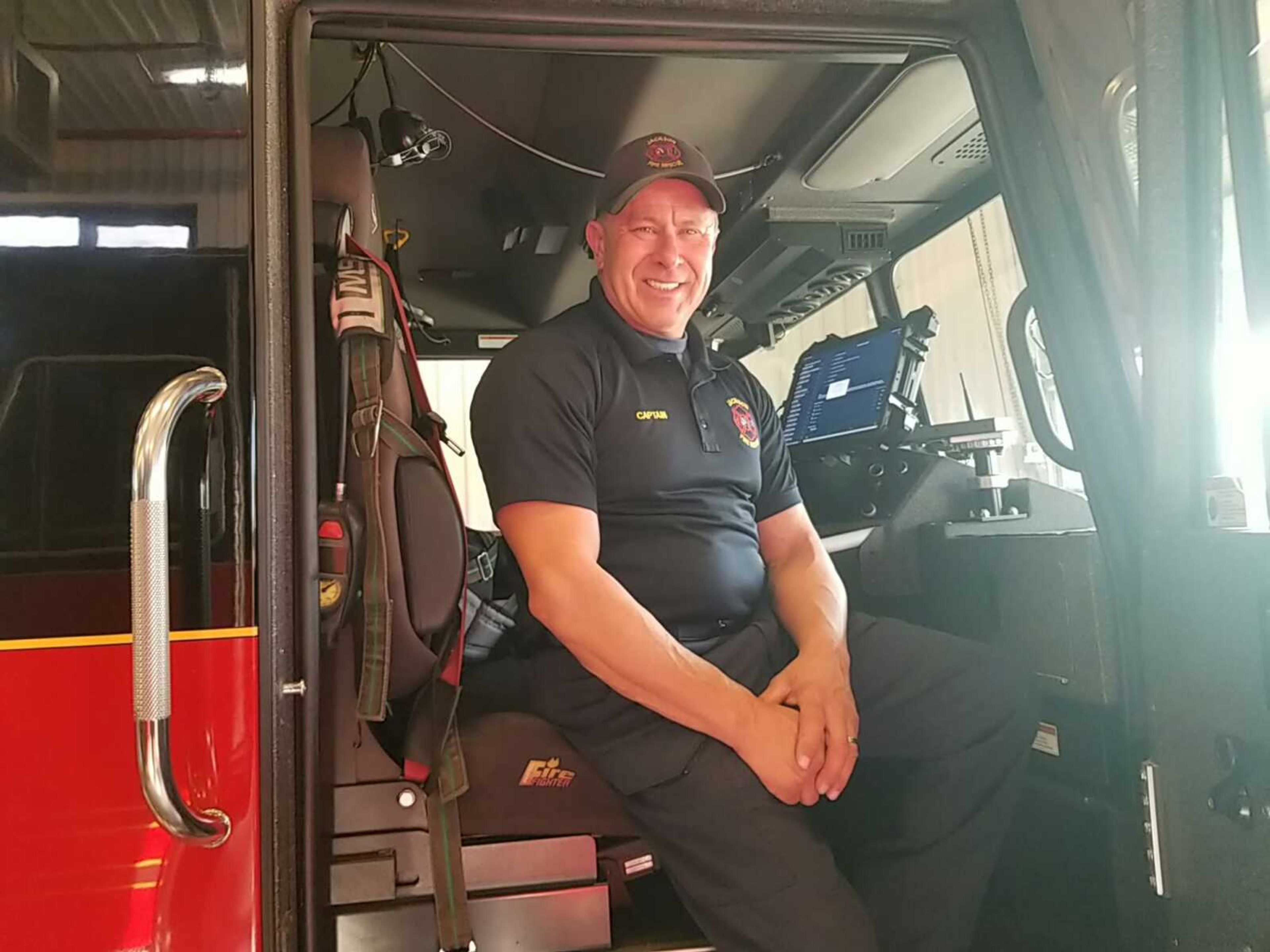
A day in the life
"There is no textbook or typical day in fire service response, and this is the honest truth: When you see firemen, we're basically all a bunch of adrenaline junkies. We want to get in there and make all the difference we can in the shortest amount of time. When you're going into a burning building, it's beyond what I can describe. Most times you have to use senses other than sight because you're going in blind. You have to have to feel your way. You have to listen. You have things falling on you, and you're trying to figure out what it is," said Greif, who said things have changed since he first donned the uniform in 1992.
"When I got into it, fire service used to be all back and no brains. Now it's more brains than back. We found out fire is a science. I teach trench collapse, rope rescue and confined space. I've been in two collapses and had to dig myself out once over in Kentucky. It was a near-miss flashover. One of the classes I teach is flashover recognition."
A flashover is a term used in firefighting to refer to what U.S. Fire Administration calls "a thermally driven event during which every combustible surface exposed to thermal radiation in a compartment or enclosed space rapidly and simultaneously ignites. Flashover normally occurs when the upper portion of a compartment reaches a temperature of approximately 1,100 degrees Fahrenheit."
Greif, a native of Paducah, Kentucky, said danger and risk are obviously inherent in his line of work.
"In fire rescue, there's not a guy in this career who doesn't push the limits. When you push those limits, every now and again those limits are going to push back," Greif said.
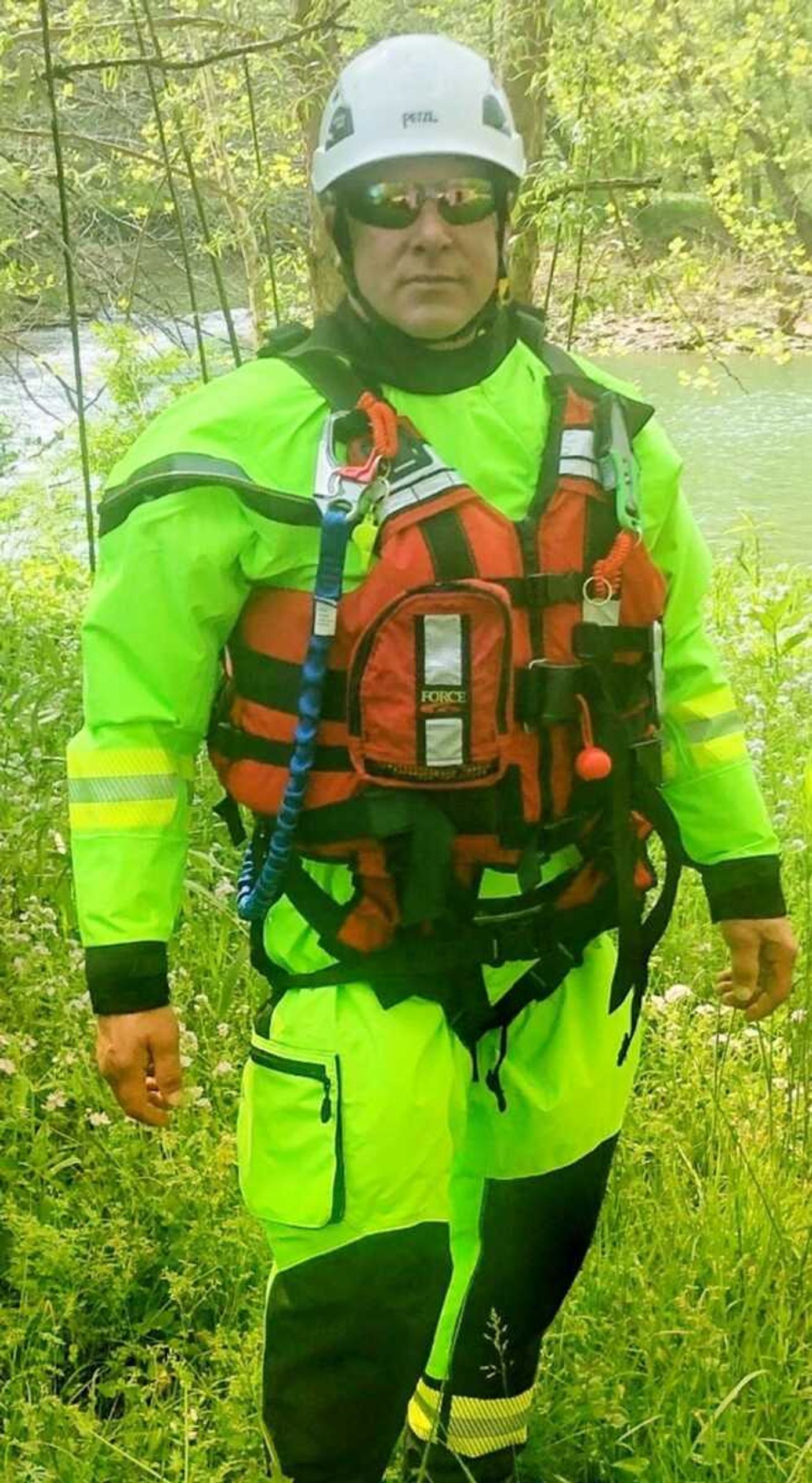
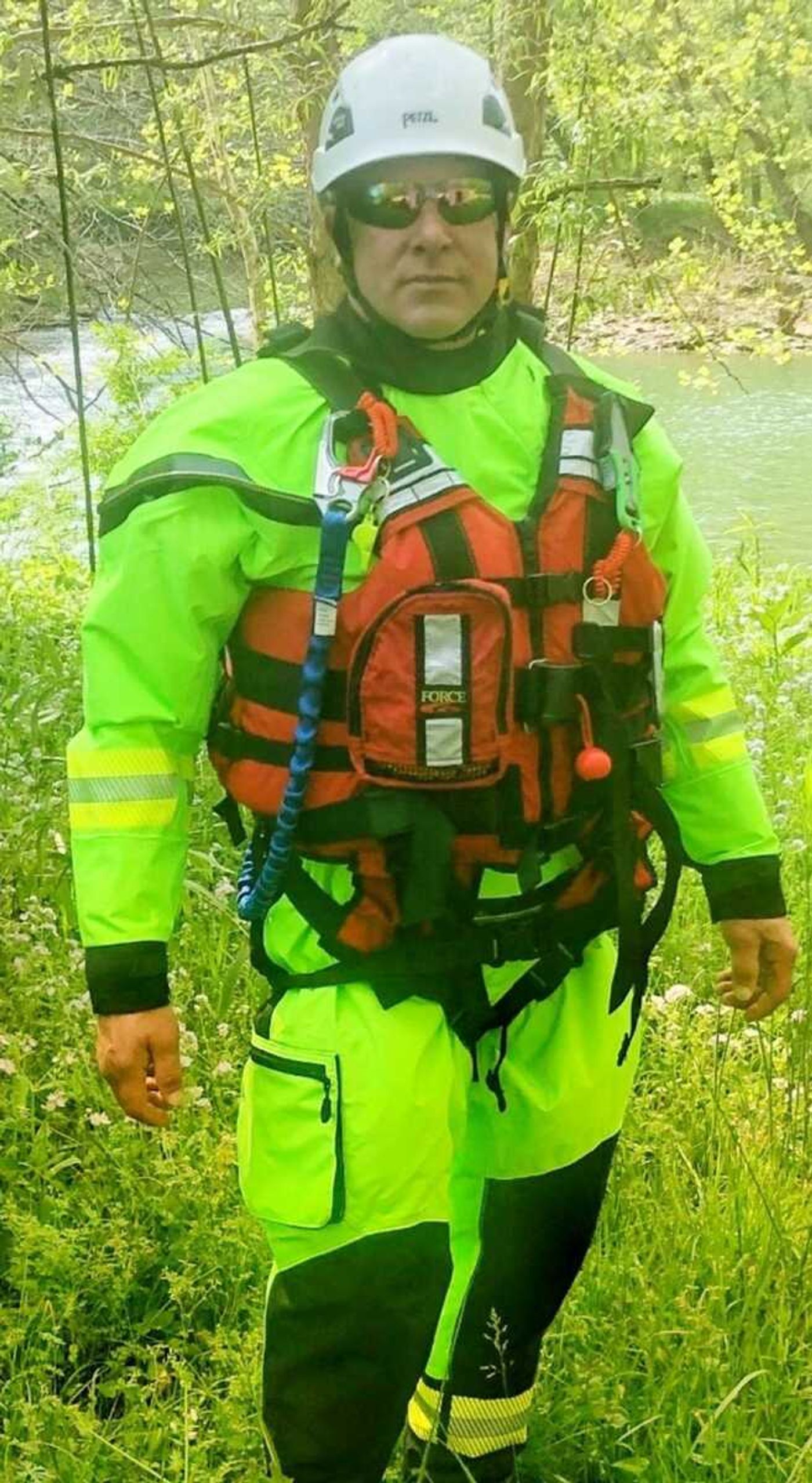
Variety
Greif is quick to point out firefighters are called on to do other things beyond their primary task of fighting blazes.
"A modern thing we've been responding to lately are opioid problems, which knock out the respiratory tract. People can end up not breathing and go into cardiac arrest. The quicker we get there and administer Naloxone — or Narcan — the more success we'll have saving that life. A few months ago, we went on a call, and a guy was unresponsive on the floor and not breathing. We gave him the Narcan, and he responded immediately. He suddenly jumps up and points to my radio and said excitedly, 'I had a radio just like that when I was a fireman in Alabama.' I wasn't expecting that at all — going from not breathing and unresponsive to jumping up off the floor and talking to me about a piece of equipment I was wearing."
Greif said the kinds of situations fire rescue responds to might surprise the general public.
"I'd say 60% to 70% of the calls are medicals, such as administering Narcan; about 25% are tech rescue, and vehicle extrication is the most common form of that response; and the rest are fires," he noted.
Greif said occasionally first responders are there when a newborn comes into the world.
"Not long ago, we got a call for a woman having contractions, and it was right down the street from us. We were at her residence in less than three minutes. I wasn't expecting to cut an umbilical cord that night," he recalled.
Final word
"There is a stereotype that we sit around the fire station all day and watch TV. Not true," Greif said. "We're constantly training. On average, with all the credentials I have, it takes approximately 180 continuing education unit hours to recertify. We're constantly training because we want and need to keep improving. By the time you think you have a technique mastered, the technology changes. I love my job — whether it's responding to a first alarm or a false alarm, fighting a structure fire or showing children a little bit about what we do. I like it all. It's good."
Connect with the Southeast Missourian Newsroom:
For corrections to this story or other insights for the editor, click here. To submit a letter to the editor, click here. To learn about the Southeast Missourian’s AI Policy, click here.


